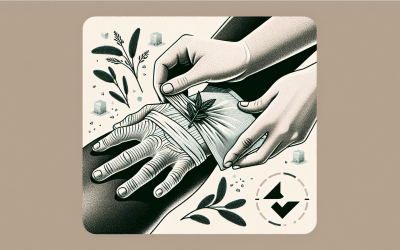Discover how a support system aids in post-surgery recovery at Eastside Ideal Health. Regain strength, motivation, and healing through our comprehensive care.
Heal Strong, Recover Fully
Post-Surgery Rehab in Redmond, WA
Start Your Customized Rehab Plan
Locations in Redmond & Issaquah
Return to the Activities that Matter Most
Recovering from surgery doesn’t end when you leave the hospital—it begins. At Eastside Ideal Health, our post-surgery rehabilitation programs are designed to help you restore movement, rebuild strength, and return to your life with confidence. Whether you've undergone joint replacement, spinal surgery, or rotator cuff repair, we support your recovery with expert, hands-on care tailored to your procedure and healing timeline.
Why Post-Surgical Rehab Matters
Surgery may correct the structural issue, but rehab restores how your body moves and functions. Without proper rehabilitation, scar tissue, joint stiffness, or muscle weakness can limit your recovery and increase your risk of reinjury. Our goal is to help you recover fully—not just heal.
Conditions We Commonly Support
- Total knee, hip, or shoulder replacements
- Spinal surgeries (fusion, laminectomy, discectomy)
- ACL or meniscus repairs
- Rotator cuff repair and shoulder decompression
- Foot and ankle surgeries
Our 4-Phase Rehab Approach
Phase 1: Protective Mobility (0–2 weeks)
We work within your surgeon’s protocols to reduce swelling, protect the surgical site, and restore gentle mobility. Techniques include assisted range of motion, icing strategies, and safe movement education.
Phase 2: Early Strength & Stabilization (2–6 weeks)
As pain decreases, we introduce soft tissue therapy, isometric strengthening, and joint mobilizations to prevent compensations and support structural balance.
Phase 3: Functional Rebuilding (6–12 weeks)
Once cleared for active loading, we incorporate bodyweight exercises, gait retraining, core stability drills, and progressive resistance work to restore daily movement capacity.
Phase 4: Return to Activity (3+ months)
We help you transition back to sport, work, or hobbies with confidence. This may include movement pattern correction, agility training, and injury prevention strategies.
Integrative Care That Adapts to You
We tailor your recovery plan in collaboration with your surgical team. Care may include:
- Joint mobilization to restore lost range of motion
- Myofascial release and scar tissue management
- Neuromuscular re-education for balance and coordination
- Corrective exercise and strength programming
- Postural training and movement retraining
Evidence-Based Recovery
“Progressive resistance training and early supervised movement significantly improve recovery outcomes after surgery, including functional mobility and pain reduction.”
Frequently Asked Questions
- How soon after surgery can I start rehab?
- We typically begin rehab within the first week post-op, depending on your surgeon’s protocol. Early motion often improves long-term results.
- Do I need a referral?
- No referral is required. We’re happy to coordinate care with your orthopedic or surgical provider if needed.
- Will this be painful?
- Our focus is on safe, progressive recovery. While some discomfort is normal, your plan is always adapted to your current stage and pain level.
Recover Stronger. Move Better.
Don’t settle for partial recovery. Let our team guide you through a proven process that helps you return stronger, more mobile, and ready for whatever comes next.
Schedule Your Post-Surgery Rehab Consultation
Related Services:
“
Testimonials
Accelerate Your Recovery
Our post-surgical rehab programs help reduce pain, restore movement, and speed up healing after orthopedic procedures.
Personalized Plans for Better Outcomes
We work closely with your medical team to create a rehab plan tailored to your surgery, lifestyle, and recovery goals.
Regain Strength and Confidence
From mobility training to targeted therapy, our approach supports a safe, steady return to daily activities and long-term wellness.
Learn More About Post Surgery Rehab
Post Surgery Rehab Resources
How to Address Nerve Pain After Surgery
Discover effective ways to alleviate and manage nerve pain after surgery. Get expert guidance from Eastside Ideal Health and regain control of your recovery.
The Role of Chiropractic Care for Post-Hand Surgery Rehab
Discover how chiropractic care supports post-hand surgery rehab at Eastside Ideal Health. Trust the experts in natural healing and holistic wellness.
The Benefits of Holistic Health Practices in Post-Surgery Recovery
Discover the advantages of holistic health practices for post-surgery recovery at Eastside Ideal Health. Achieve optimal wellness and rejuvenation. Save now! #holistichealth #recover #eastside #wellness
How to Address Post-Surgery Weight Gain
Learn effective ways to manage and minimize post-surgery weight gain with Eastside Ideal Health. Find expert guidance and support to overcome this challenge.
How to Reduce Swelling and Inflammation After Surgery
Discover effective techniques to minimize post-surgery swelling and inflammation. Eastside Ideal Health holds the keys to reduce discomfort and heal faster.
Contact Us For An Appointment
Get Relief
Clinic Hours
Monday-Friday: 730am - 6pm
Saturday: 9am - 12pm
Sunday: Closed






